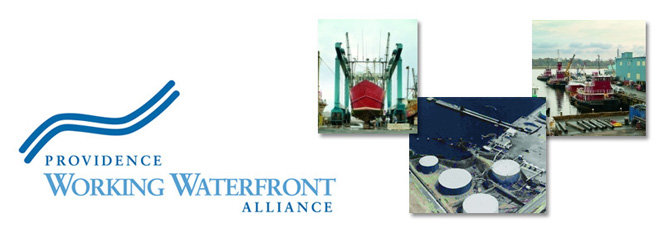Don Church of Seaboats Inc. has an excellent opinion editorial in the Providence Journal about the critical role that barges play in supplying Rhode Island with gasoline and home heating oil, and how the Port of Providence is well situated to attract new coastal barge commerce:
Did you know that most of Rhode Island’s gasoline and home-heating oil comes into the state by barge? Without tank barges making those deliveries, we would all be a lot colder this winter! Rhode Island also exports ethanol via barge, a vital part of the state’s economy. The barge industry also provides opportunities for good-paying family-wage jobs. Rhode Island’s unemployment rate is the nation’s fifth-highest; expanding opportunities for maritime jobs is important. Because the Port of Providence is the only deep-water port in New England besides Boston, commercial waterways transportation is an economic engine for the region.
The Port of Providence recently won $10.5 million in federal funds to buy two harbor cranes to expand cargo handling and make the port more competitive. More cargo transported in and out of the port will mean more jobs. Port-related employment has increased 300 percent in the past 15 years. With over 30,000 Rhode Islanders out of work, Rhode Island’s historic maritime industry and the state’s ports could not be more critical.
Barging is the most economical and efficient mode of cargo transportation, given the enormous carrying capacity and fuel efficiency of a barge. One coastal barge can carry the same amount of liquid cargo as 336 tanker trucks. Without barge transportation, imagine the congestion that would result from thousands more trucks on our already clogged highways, not to mention the additional air pollution!
Barging brings us the home-heating oil that keeps Rhode Islanders warm in the winter without facing shortages and much higher costs. Barges also transport the bulk commodities that are the building blocks of the U.S. economy, including millions of tons of coal to power plants for electricity production, petroleum products to heat our homes and fuel our vehicles and airplanes, chemicals essential to our industries, concrete for construction projects and salt for our winter roads. Vital industries depend on barge transportation to deliver these commodities. Without barge transportation, the costs of these materials would skyrocket.
The barge industry is the safest and most environmentally friendly cargo transportation. Barging produces lower air emissions than rail or truck, and U.S. Coast Guard statistics show that more than 99.999 percent of oil transported by tank barges is delivered safely. In fact, tank-barge spills have declined by 99.6 percent since 1990. In 2009, tank-barge oil spills reached the lowest levels since 1973, when Coast Guard record keeping began. Spills from barges accounted for just 9.3 percent of marine- spill volume, less than tank ships, cargo ships and marine transportation facilities.
A study by the Texas Transportation Institute at Texas A&M University found that the fuel efficiency of tugboats and towboats combined with the superior carrying capacity of barges make barging the most efficient and affordable transportation mode for freight, compared with rail or trucking. The industry offers good jobs on its vessels, and thousands of other shore-side jobs depend on a vital waterways-transportation industry. It’s essential to Rhode Island.

